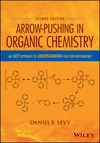Until now, my posts focused on philosophies regarding the current state of education and industry. In fact, when I started this blog, my intent was to focus solely on issues which are constructive to the advancement of science and innovation. I had no desire whatsoever to address divisive political topics. However, with the continued onslaught of negative press and political agendas targeting the pharmaceutical industry, I feel compelled to add my voice. To this end, I want to thank Dr. Andrew Weil for providing me with material for this posting.
While I do not know Dr. Weil and I doubt that I will ever have any personal interaction with him, I know that he is extremely knowledgeable and well respected. It is not my intent to detract from his stature and I apologize if this posting does that. My intent here is to engage in an intelligent debate based upon Dr. Weil's blog of September 2, 2009 as published in the Huffington Post (
http://www.huffingtonpost.com/andrew-weil-md/disease-mongering-good-fo_b_275616.html). In this posting, Dr. Weil, discusses the term "disease mongering" as a mechanism used by the pharmaceutical industry to take advantage of uninformed consumers. As Dr. Weil states,
"A central disease-mongering tactic is to attach polysyllabic, clinical-sounding names to what used to be seen as trivial or transient conditions. In most cases, the new, formidable names come complete with acronyms, which add even more gravitas."Before I go any further, I would like to point out that when a significant population experiences a common symptom, illness, syndrome or disorder, it makes good sense to classify these indications under a common name. This helps doctors to identify patient populations they may be able to help. Furthermore, patients are supported through the knowledge that there are others sharing their discomfort. Finally, pharmaceutical companies are assisted through the identification of populations suffering (for whatever reason) from indications for which there is no treatment. Through the identification of disorders with established unmet medical needs, pharmaceutical firms are able to identify markets and drive research activities to the eventual benefit of these patient populations.
Dr. Weil, in his September 2 posting, highlights five indications that are established disorders requiring, in many cases, medical intervention. These indications, along with Dr. Weil's "disease mongering" examples are:
- Occasional heartburn becomes "gastro-esophageal reflux disease" or GERD.
- Impotence becomes "erectile dysfunction" or ED.
- Premenstrual tension becomes "premenstrual dysphoric disorder" or PMDD.
- Shyness becomes "social anxiety disorder" or SAD.
- Fidgeting legs becomes "restless leg syndrome" or RLS.
In listing these example, Dr. Weil does nothing more than trivialize these indications and the patients who suffer from them. I, myself, suffer from GERD. For many years, I experienced chronic heartburn independent of diet. At one point, the pain was so severe that it was debilitating. I began taking proton pump inhibitors and eventually had surgery to tighten my lower esophageal sphincter muscle. While I am doing much better, I still have to take occasional medication to control lingering symptoms. I must also submit to periodic esophageal endoscopy procedures to monitor my Barrett's esophagus - a precancerous condition caused by GERD. For me, GERD is not an indication that can be treated by giving my body's "
healing mechanisms a chance to find equilibrium."
Pharmaceuticals and Nutraceuticals - Marketing on an Equal Playing Field In reading Dr. Weil's posting, I understand that part of his message relates to the practice of drug companies marketing their products directly to consumers. Personally, I see no problem with this practice. If a consumer is to be able to make informed decisions regarding healthcare, that consumer should know about all possible medical treatments - including pharmaceuticals. After all, if vitamins, dietary supplements and herbs (all classified as nutraceuticals) can be directly marketed to consumers, why can't prescription medications?
In the interest of fairness, I fully support the right of consumers to seek whatever medical interventions are best for them. I fully respect the history behind folk remedies and I do not pass any judgement upon those who choose alternatives to prescription medications. After all, herbs have served as sources for many modern therapeutics from aspirin to morphine.
While nutraceuticals, derived from herbal remedies, may deliver some potential therapeutic benefits, they are not regulated or controlled under the same requirements as prescription drugs. For example:
- Prescription drugs must be proven safe and efficacious through human clinical trials - nutraceuticals are not held to this standard
- Prescription drugs, when marketed, must have a package insert detailing adverse effects, dosage information and potential drug-drug interactions - nutraceuticals are not held to this standard
Because herbal remedies and dietary supplements contain naturally occurring pharmaceutically active components, patient who use these alternatives through self medication are putting themselves at risk based upon uncontrolled or arbitrary dosing and potential interactions with medications they may be taking by prescription.
If consumers are to have the ability to make informed choices regarding their healthcare options, all products marketed as potential health remedies must be held to the same standards. Unfortunately, they are not. This is the result of two issues:
- It is not in the best interests of nutraceutical companies to fund clinical trials demonstrating efficacy when they are not required to do so
- It is not in the best interest of pharmaceutical companies to fund head-to-head clinical trials of any competing product against their own
WHERE DO THE BEST INTERESTS OF THE CONSUMERS COME IN???
In order for consumers to be able to make the most informed healthcare decisions,
all alternative medications must be held to the same clinical and regulatory standards as prescription medications. Only in this scenario can patients, with the assistance of their doctors, objectively evaluate the best course of care while minimizing adverse events and drug-drug interactions.




